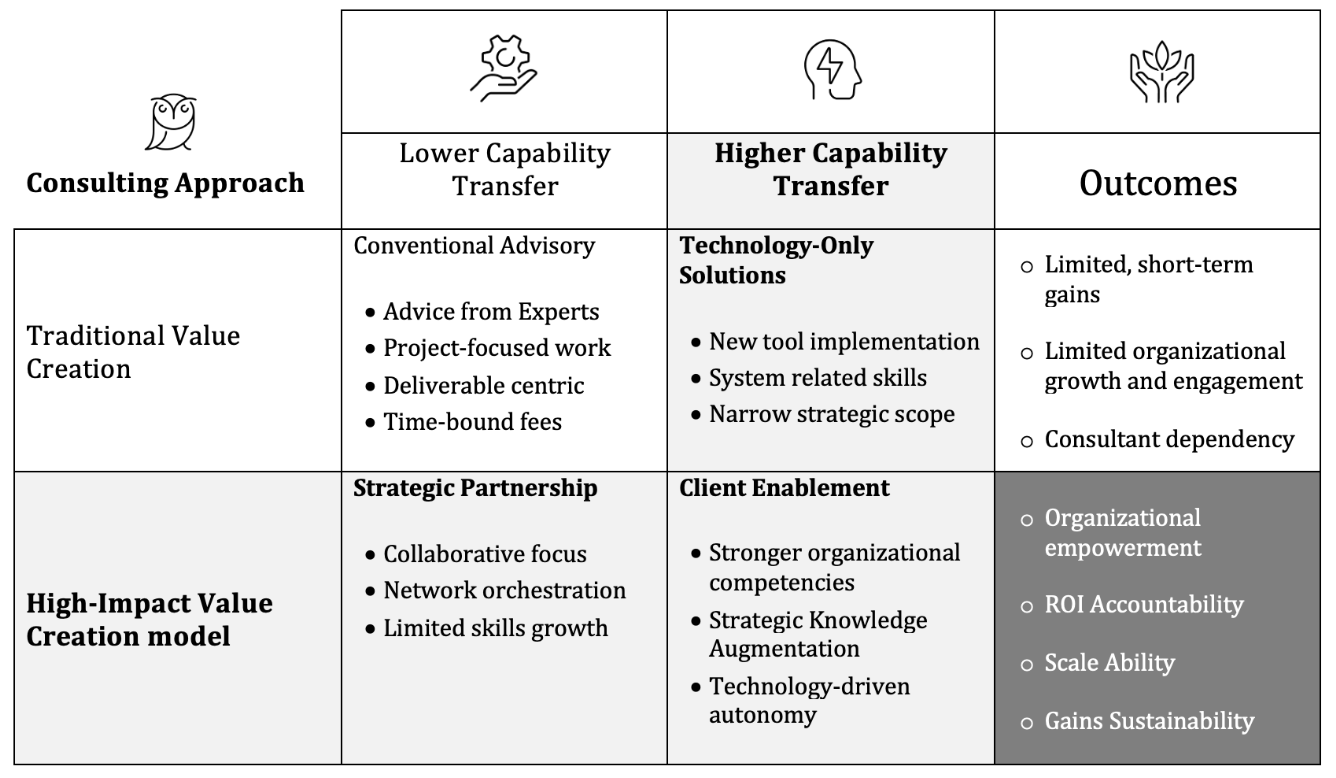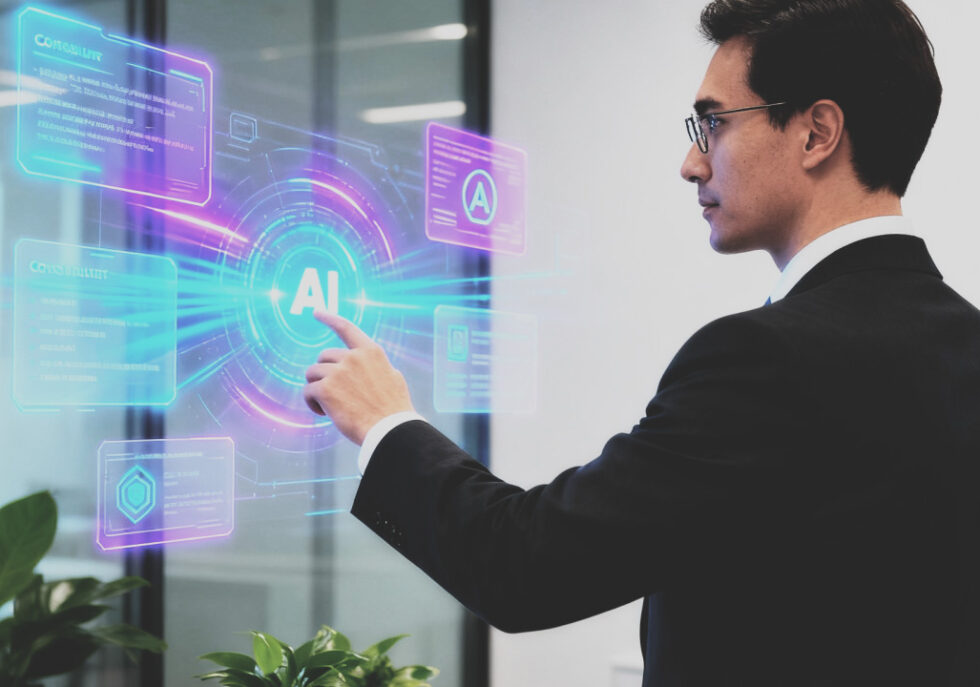Just as “vibe coding” has transformed software development by allowing anyone to create applications through natural language prompts and AI assistance, “vibe consulting” represents an equally revolutionary approach to professional consulting services. This emerging paradigm fundamentally changes how consultants work, deliver value, and empower their clients, creating unprecedented opportunities for both seasoned professionals and newcomers to the field.
The Vibe Coding Foundation: Understanding the Transformation
Vibe coding, coined by AI researcher Andrej Karpathy in early 2025, describes a development approach where programmers describe their desired outcomes in natural language rather than writing code line-by-line. This methodology has democratized software development, with studies showing that developers using AI coding assistants achieve 55% faster completion times while maintaining comparable code quality. The key insight from vibe coding is that AI doesn’t replace human expertise—it amplifies it by handling implementation details while humans focus on vision, strategy, and creative problem-solving. (source)
The transformative power of vibe coding lies in its ability to bridge the gap between conceptual thinking and technical execution. Practitioners report being able to iterate on ideas themselves before involving development teams, coming to meetings with ready prototypes rather than just specifications. This shift from syntax to solutions has enabled non-technical individuals to contribute meaningfully to software development while empowering experienced developers to tackle more complex challenges. (source)
Defining Vibe Consulting: The Next Frontier
Vibe consulting applies the same revolutionary principles to the consulting industry. Just as vibe coding leverages AI to translate natural language descriptions into functional code, vibe consulting uses AI to augment every aspect of the consulting workflow—from research and analysis to client communication and deliverable creation. This approach transforms consultants from traditional advisors into “outcome accelerators” who can deliver faster, more comprehensive, and more cost-effective solutions. (source)

The core principle of vibe consulting mirrors that of vibe coding: AI handles the mechanical aspects of consulting work while humans focus on strategic thinking, relationship building, and creative problem-solving. This creates a hybrid model where consultants can provide services at unprecedented speed and scale while maintaining the human touch that clients value most. (source)
The Augmentation Advantage: Transforming Consulting Capabilities
Enhanced Speed and Efficiency
Vibe consulting dramatically accelerates the consulting lifecycle through intelligent automation. Research that traditionally took weeks can now be completed in hours, with AI tools capable of analyzing vast datasets, summarizing industry reports, and generating initial insights almost instantaneously. According to recent studies, 56% of consultants now save 3-4 hours daily using generative AI—significantly higher than professionals in financial (34%) or technology (31%) industries. (source)
The time savings extend beyond individual tasks to entire project workflows. AI-powered platforms can automate routine activities such as data entry, meeting minutes, report generation, and client communication, allowing consultants to focus on higher-value strategic work. One consulting firm reported that McKinsey’s internal AI platform Lilli enabled 75% of their 40,000 employees to save 30% of time spent on research and synthesis within just one year. (source)
Democratizing Consulting Expertise
Perhaps the most transformative aspect of vibe consulting is its ability to make sophisticated consulting capabilities accessible to a broader range of professionals. Just as vibe coding allows non-programmers to build applications, vibe consulting enables subject matter experts from various industries to provide high-quality consulting services without traditional barriers. (source)
This democratization effect is particularly powerful for mid-market businesses that previously couldn’t afford traditional consulting services. A manufacturing executive with years of industry experience can now leverage AI to identify inefficiencies, create implementation plans, and track outcomes—essentially becoming a consultant augmented by AI capabilities. The technology handles the analytical and documentation work while the expert provides industry knowledge and strategic insight. (source)
Scalability Without Proportional Cost Increases
Traditional consulting models face inherent scalability limitations due to their dependence on human hours. Vibe consulting breaks this constraint by leveraging AI to handle routine tasks that would otherwise require additional consultants. This creates a compound effect where automated systems improve with more data and can handle increased workloads without proportional cost increases. (source)
The scalability advantage is particularly evident in data analysis and pattern recognition tasks. AI-driven tools can process massive datasets, identify trends, and generate insights across multiple client engagements simultaneously, allowing a single consultant to serve more clients effectively. This scalability translates directly into cost savings for clients and increased profitability for consultants. (source)
Implementation Models and Approaches
The Hybrid Consulting Framework
The most effective vibe consulting implementations follow a hybrid model that strategically combines AI capabilities with human expertise. This approach recognizes that while AI excels at data processing, pattern recognition, and routine task automation, human consultants remain essential for strategic thinking, change management, and relationship building. (source)
Successful hybrid consultants use AI for rapid project ramp-up, real-time question answering during client workshops, intelligent deliverable reuse, risk mitigation through pattern recognition, and on-demand upskilling. The consultant’s role evolves from information gatherer and analyzer to strategic guide and implementation facilitator, focusing on outcomes rather than activities. (source)
Technology Integration Strategies
Our Vibe Consulting platform, Sendplex, integrates multiple AI agents that work collaboratively to support different aspects of the consulting process. This system includes specialized agents for market research, client analysis, project management, document creation, and billing, all orchestrated through a unified interface that maintains human oversight of critical decisions.

The most successful implementations prioritize Simplicity, Synergy, and Security—enabling pre-built plug-and-play agents while maintaining cross-firm security guardrails and keeping humans in control of strategic decisions. This approach allows consultants to leverage AI capabilities without sacrificing the trust and accountability that clients expect.
Business Model Transformation
From Time-Based to Outcome-Based Pricing
Vibe consulting fundamentally challenges the traditional hourly billing model that has dominated the consulting industry. When AI can complete in hours what previously took weeks, the value proposition shifts from time spent to outcomes achieved. This transition enables consultants to offer fixed-price engagements, subscription-based services, or performance-linked compensation models.

The pricing transformation creates a win-win scenario: clients receive faster results at lower costs, while consultants can achieve higher profitability by leveraging AI efficiency. Traditional consultants might charge $300/hour and deliver in weeks, while vibe consultants can charge $5,000-$50,000 per project and deliver in days. (source)
Asset-Based Service Models
Vibe consulting enables the development of proprietary AI-powered tools and platforms that become ongoing revenue sources. Rather than delivering one-time recommendations, consultants can create intelligent systems that continuously monitor client operations, provide real-time insights, and adapt to changing conditions. This asset-based approach transforms consulting from a project-based service to a continuous value-creation partnership. (source)
These AI-powered assets can be deployed across multiple client engagements without requiring proportional increases in consultant time, creating scalable revenue streams that compound over time. Clients benefit from continuous access to consulting insights while consultants build sustainable, recurring revenue models. (source)
Overcoming Implementation Challenges
Addressing Resistance and Building Capabilities
The transition to vibe consulting faces similar challenges to those encountered in vibe coding adoption. Resistance often stems from concerns about job displacement, quality control, and client acceptance. However, successful implementations focus on augmentation rather than replacement, emphasizing how AI enables consultants to provide higher-value services rather than eliminating their role. (source)
Building vibe consulting capabilities requires investment in both technology and human development. Consultants need training in AI tool utilization, prompt engineering, and hybrid workflow design. Organizations must also establish governance frameworks that ensure AI outputs meet quality standards and align with ethical guidelines. (source)
Data Infrastructure and Security
Effective vibe consulting depends on robust data infrastructure and stringent security measures. Unlike traditional consulting, which relies primarily on consultant expertise, AI-augmented approaches require access to large datasets and the ability to process them securely across client boundaries. This necessitates investment in data governance, privacy protection, and compliance frameworks that meet industry standards. (source)
Security considerations are particularly critical given that vibe consulting platforms often integrate multiple AI agents and data sources. Successful implementations establish cross-firm security guardrails while maintaining the flexibility needed for creative problem-solving and rapid iteration.
Industry Impact and Future Outlook
Market Size and Growth Potential
The vibe consulting market opportunity parallels the explosive growth in AI adoption across business functions. With 72% of organizations now using AI in at least one business function (up from 55% in 2023), the demand for AI-augmented consulting services continues to expand. The global AI agents market is growing at 43.8% annually, creating substantial opportunities for consulting firms that can effectively leverage these technologies. (source)

Mid-market businesses represent a particularly attractive segment for vibe consulting services. These organizations often lack the resources to hire traditional consulting firms but have clear needs for strategic guidance and operational improvement. Vibe consulting’s cost efficiency and accessibility make sophisticated consulting services viable for this underserved market segment. (source)
Competitive Differentiation
Consulting firms that successfully implement vibe consulting gain significant competitive advantages through faster delivery times, lower operational costs, and the ability to serve a broader client base. Early adopters report 15% cost reductions and 2X AI project success rates compared to traditional approaches. These efficiency gains compound over time as AI systems learn and improve their performance. (source)
The competitive landscape is evolving rapidly, with both established consulting firms and new AI-native competitors entering the market. Traditional firms are acquiring AI-centric boutiques and recruiting younger talent, while vibe consulting firms are forming alliances with established organizations for larger projects. (source)
Strategic Recommendations for Implementation
For Individual Consultants and Freelancers
Individual consultants and freelancers looking to adopt vibe consulting should begin by identifying specific tasks that can be automated or augmented through AI tools. Priority areas include data analysis, research synthesis, document creation, and client communication. The key is to start small, learn from experience, and gradually expand AI integration as capabilities and confidence grow. (source)
Building vibe consulting expertise requires developing both technical skills and strategic thinking about AI application. Consultants should focus on understanding AI capabilities and limitations, learning effective prompt engineering techniques, and maintaining the human judgment necessary to guide AI outputs toward valuable outcomes. (source)
For Consulting Firms
Consulting firms should approach vibe consulting implementation strategically, focusing on process redesign alongside technology adoption. The most successful implementations integrate AI tools into existing workflows while establishing governance frameworks that ensure quality and maintain client trust. (source)
Organizational readiness is crucial for successful vibe consulting adoption. Firms need to invest in training, change management, and cultural transformation to help their consultants embrace AI augmentation rather than resist it. This includes establishing clear guidelines for AI use, performance metrics that reflect outcome-based value creation, and incentive structures that reward efficiency and innovation. (source)
The Future of Consulting
Vibe consulting represents more than just a technological upgrade—it’s a fundamental reimagining of how consulting services are conceived, delivered, and valued. Just as vibe coding has democratized software development and enabled new forms of creativity and innovation, vibe consulting has the potential to transform the professional services industry by making high-quality advisory services more accessible, affordable, and effective.
The transition to vibe consulting is not about replacing human expertise with artificial intelligence; it’s about amplifying human capabilities to create unprecedented value for clients. Consultants who embrace this transformation will find themselves better equipped to tackle complex challenges, serve diverse clients, and build sustainable, scalable practices that thrive in an increasingly AI-driven economy. (source)
As the consulting industry continues to evolve, the principles of vibe consulting—AI-human collaboration, outcome-focused delivery, and democratized expertise—will likely become standard practice rather than competitive advantages. Those who begin this transformation today will be best positioned to lead the consulting profession of tomorrow. (source)








